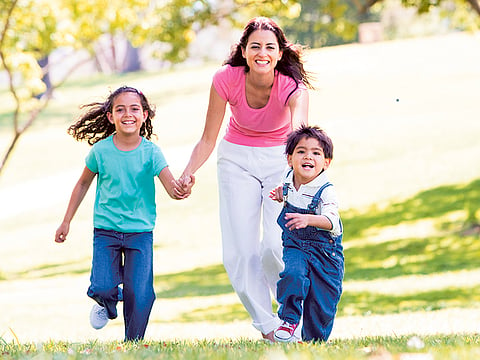Norway ranks as world’s best place to be a mother
Save the Children reports that mothers are having a tougher time in world’s expanding cities

United Nations: Norway ranks as the world’s best place to be a mother, well ahead of the United States which dropped to the 33rd spot in the annual scorecard released by Save the Children on Monday.
Somalia is the worst place, just below the Democratic Republic of Congo and the Central African Republic.
Save the Children released its 16th annual Mothers’ Index, which rates 179 countries based on five indicators related to maternal health, education, income levels and the status of women.
This year, the United States dropped from number 31 on the list to 33, behind Japan, Poland and Croatia.
American women have a one in 1,800 risk of maternal death, the worst level of risk of any developed country in the world, according to the report.
An American woman is more than 10 times as likely to die in childbirth than a Polish woman.
Scandinavian countries have consistently taken the first spots in the Mothers’ Index, with Norway this year beating out Finland which held the top spot last year.
Among the top ten, Australia is the only non-European country, at number nine.
France and Britain take the 23rd and 24th spot, below Canada at number 20.
The ten worst places are all sub-Saharan African countries, with Haiti tied with Sierra Leone for the 169th spot.
Nine of the bottom ten countries are wracked by conflict.
The disparity in terms of infant mortality is striking.
In the top 10 countries, one mother out of 290 will lose a child before the age of five. In the bottom 10, that rate stands at one in eight.
Save the Children also looked at infant mortality rates in the world’s 24 wealthiest capital cities and found Washington had the highest rate at 7.9 deaths per 1,000.
By comparison, Stockholm and Oslo had infant mortality rates at or below 2 deaths per 1,000.
Save the Children CEO Carolyn Miles said the data confirmed that a country’s economic wealth is not the sole factor leading to happy mothers, but that policies need to be put in place.
In the case of Norway, “they do have wealth, but they also invest that wealth in things like mothers and children, as a very high priority,” Miles said.
Save the Children also reported that mothers are having a tougher time in the world’s expanding cities, with survival gaps between rich and poor widening.
Cities in Bangladesh, Cambodia, Ghana, India, Kenya, Madagascar, Nigeria, Peru, Rwanda, Vietnam and Zimbabwe have the highest gap for child survival, with poor children three to five times more likely to die than their affluent peers.
Sign up for the Daily Briefing
Get the latest news and updates straight to your inbox



